Features
Since 2012, Commanders from across the country have come together every January for Sigma Nu’s premier leadership development conference. Over the years the location has changed, moving from St. Louis to Roanoke, Va., but the purpose has remained the same: bring together every Commander for several days of intense leadership training that will give them tangible skills and tools to guide their chapters to excellence. In execution, it’s a bevy of information crammed into a short window of long days. Participants get an opportunity to network with other collegians, talk with alumni faculty, tour VMI and the Headquarters property, attend elective sessions catered to areas their chapter needs improvement in, and walk away with a strategic plan that they created for their chapter.
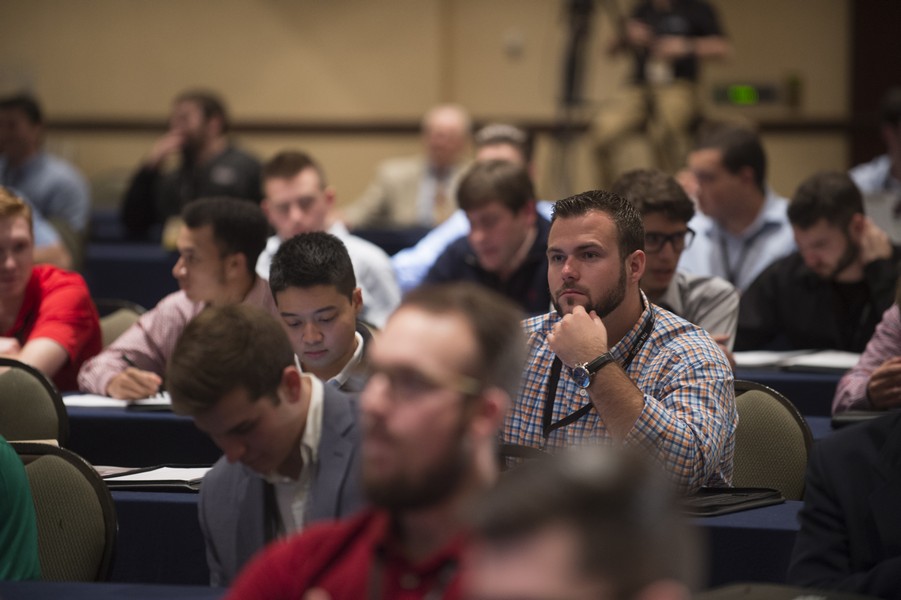
But what happens when they head home and information is put into action? We spoke with Gideon Samara (RIT), Jack Grantham (Alabama), and Chase Hart (UCLA), all attendees of the 2016 College of Chapters, to see how things were going, what hurdles they encountered, and what successes they’ve had.
The First Meeting
Oftentimes, Commanders leave College of Chapters with a healthy dose of zeal and vigor for their position. It’s hard to not walk away with such a feeling after walking on the very same Parade Ground where the Legion of Honor’s founders met on a moonlit night in 1869. But once they arrive back on campus comes the first step in launching their vision into reality. When Gideon Samara got back to school he knew he had to secure some buy-in first, “I talked with the previous Commander first to get his thoughts. That led into meeting with some other brothers in the chapter.”
Jack Grantham went in a similar direction. His chapter’s Executive Council met first and sat down to answer the question, “what do we want our vision to be for the chapter?” From there, they came up with a broader vision for the chapter for the year. “I think the chapter appreciated it because it gave them an idea of what direction we were going in and why,” Jack recalls from the chapter meeting when the Executive Council presented their work.
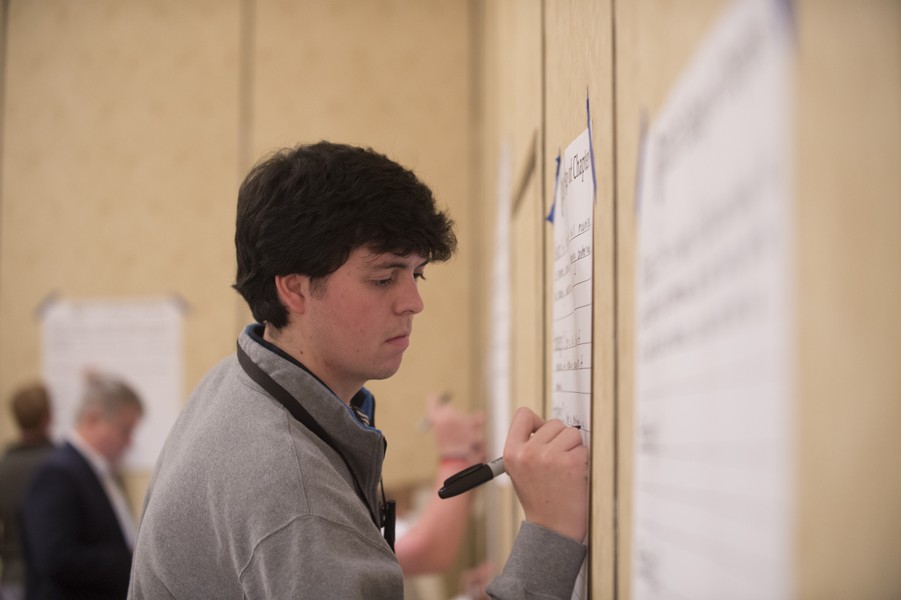
In some cases, that first chapter meeting has to transfer some of that information and enthusiasm from College of Chapters to the brothers sitting in the seats. It’s a process that. “PEP (Pursuit of Excellence Program) wasn’t something my chapter was really familiar with before so I went out and made copies of each officer’s responsibilities,” Chase Hart shared from those first days back on campus after College of Chapters. “From there I met with them one-on-one.”
The First Hurdles
All three Commanders we spoke with had similar plans to introduce their visions and strategies to their chapters, which wasn’t entirely surprising. It was surprising, however, that they all shared the same challenges in implementing those visions and strategies.
“One of the biggest challenges was getting everyone onboard. When you have a large chapter it’s sometimes hard to get everyone on the same page,” shared Chase.
Gideon echoed some of that sentiment. “Getting everyone to have the same common goal is difficult. Some people have different perspectives and philosophies and it can be hard to pull them together and think like a group.”
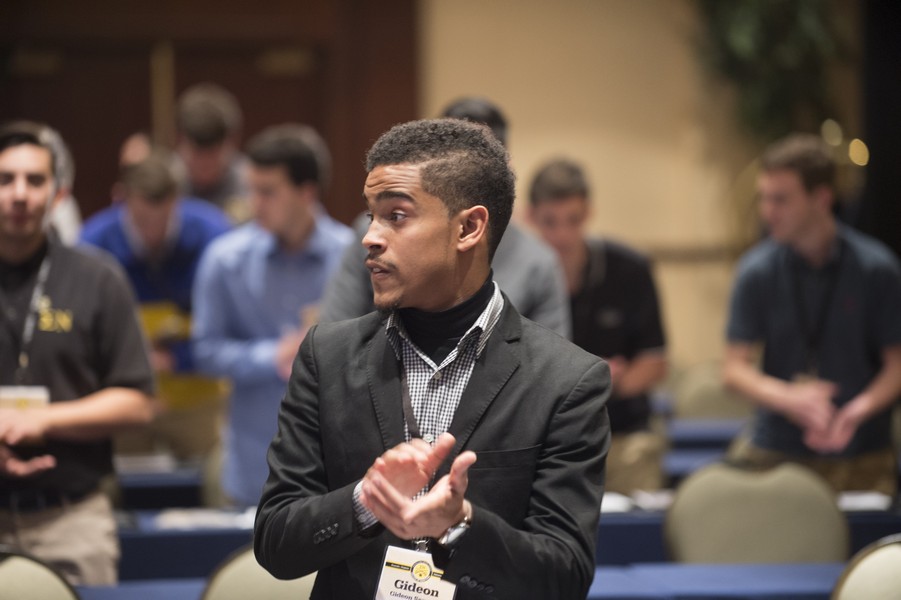
What wasn’t similar among these early hurdles were the sources of where they came from, or their solutions.
Jack saw that his chapter, like many others, had members who were in it mostly for themselves. They seemed reluctant to work towards a common goal and were frequently the hardest to get invested in what the chapter was trying to accomplish. He also noticed that his chapter’s newest members were a tough crowd to sell the chapter’s vision to. “It was especially hard with the Freshmen. Because their experience in the chapter was limited, they didn’t have the same perspective others had. They didn’t think anything needed improvement because everything was working just fine at the time.”
Similarly, Chase was sensing his chapter was having some communications issues of its own, only these were coming from the upperclassmen. “Throughout one week I solidified who’s who in each candidate class and who to distribute information directly to. That was really effective because the message was being relayed from peers as opposed to maybe a much younger brother.”
Excellence is Not Accidental
Early challenges aside, each Commander began putting the skills learned at College of Chapters to work. The returns on these investments didn’t take long to be seen.
Both Gideon and Jack knew their chapters weren’t performing at their peak level in one critical of area of operations, LEAD. Fortunately, it was an area they came back fully equipped to address. “Coming back from College of Chapters, we were able to delegate the LEAD Program to the LEAD Chairman and get sessions scheduled before the year started,” explains Jack. “In the past either Risk Reduction Chairman or Commander were the two guys planning the LEAD Program. Now it’s truly delegated out to the appropriate officers who can execute their jobs effectively.”
For Chase, the successes came in delegating responsibilities and removing the bottleneck at the Commander’s position to free up time and resources. “We’ve made the most improvement in how our officers operate and how our chapter leadership delegates responsibility. It used to be one guy doing it all, and now there’s officers who can be trusted and held accountable to do their job,” Chase shares. “We’re now looking at a potential Rock Chapter award with continued effort and staying on the right course.”
And he’s not wrong either. Epsilon Pi (UCLA) saw improved PEP performance in 8 out of the 10 subcategories, placing them in the top-third of chapters for 2016-2017. The same is true for Mu Zeta (RIT) and Theta (Alabama), both on track to become Rock Chapter contenders in the very near future.
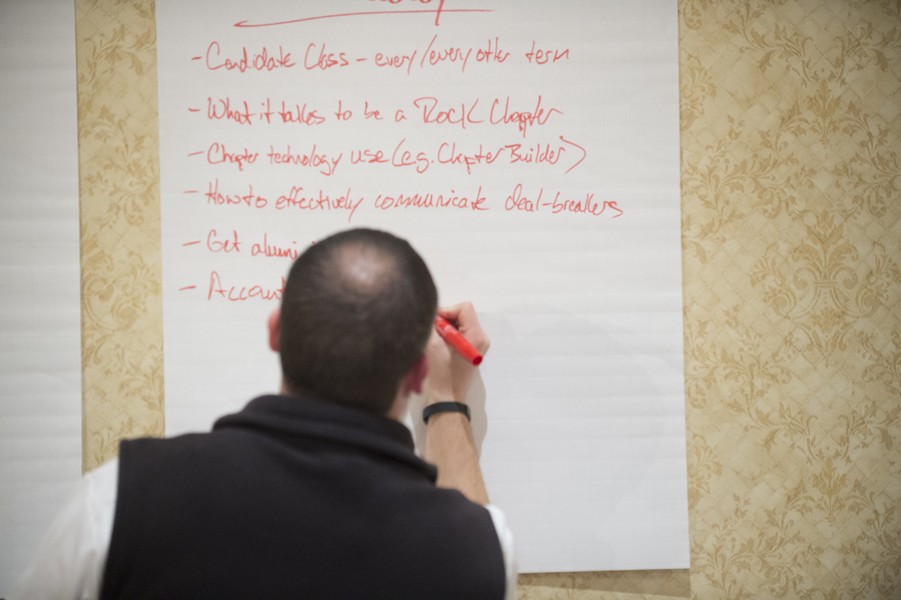
A part of this improvement is certainly explained by a variety of factors, but the role College of Chapters played in shifting the scales for Sigma Nu’s performance across the nation cannot be understated. Post-program surveys for the 2017 College of Chapters showed significant jumps in participants’ strength in the core competencies identified for Commanders. This continued focus on excellence through education has meant a welcome problem for the Fraternity: less and less stage space when announcing Rock Chapters at Grand Chapter.
Looking Ahead
It hasn’t been a perfect year for these three Commanders, but it’s been a successful one. At the time of this writing several months are left in their terms of office but each has their own set of goals they’d like to see before that last three raps of the gavel. Some of their goals focus on reinforcing relationships with campus officials or see through some final tweaks to philanthropies, events, and programs. Each one, however, shared a common refrain that they’d like to see a smooth transition of knowledge from themselves to the next brother to follow in their footsteps.
These Commanders also shared some advice for future Commanders attending College of Chapters. “Put everything aside,” Jack starts with. “You’re going there for those three days to work and prepare. Put the outside world aside for a second, it’ll still be there when you’re done.”
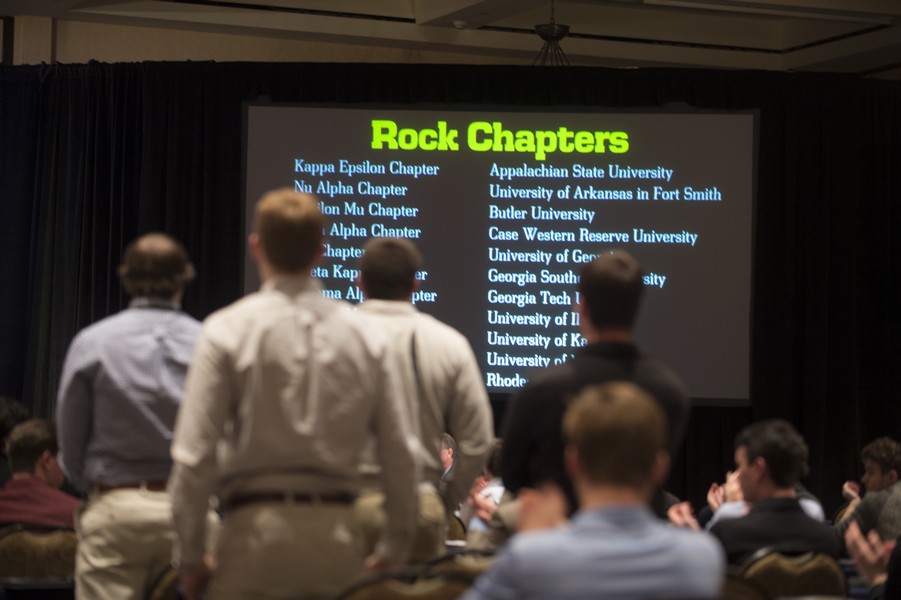
Chase shared a piece of advice that each Commander confirmed: meet new people and learn from them. “One thing that was really helpful for me was getting to talk with other Commanders in my region and around the country. Being able to share problems and solutions is critical. I keep in contact with the Commander from Epsilon Omicron (Southern California) and we’ve hung out a few times in Los Angeles. It was really interesting to talk with Commanders from similar sized chapters in the South and Midwest.”
Gideon’s words of wisdom are sound for both College of Chapters and anytime beyond. “Don’t act untruthful in presenting who and what you are. No chapter is perfect. We all have problems and we all have things we’re great at. You’re there to learn from others and hopefully teach something to others as well.”